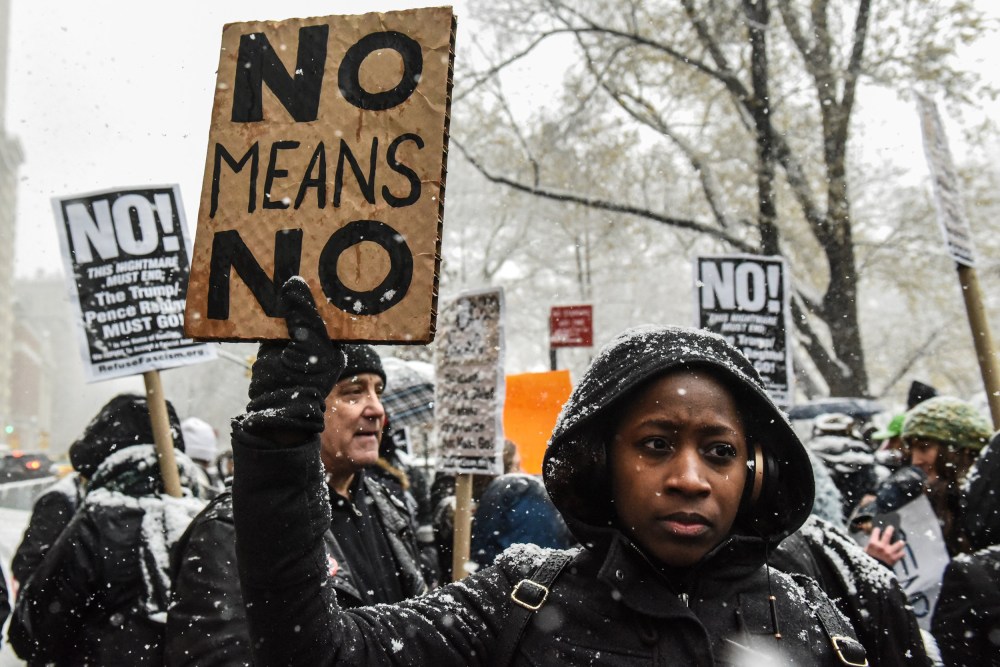Almost four years after the #MeToo movement went viral, survivors are still coming forward with their stories, often recounting atrocities that happened to them when they were children. The movement has spurred the healing process for many, but it poses a difficult question for parents: how do I talk to my kids about this difficult topic?
At this point, talking about sex abuse with kids—unpleasant though it may be—is more important than ever. According to the CDC, one in four girls and one in 13 boys is sexually abused during their childhood. Half of transgender people are sexually abused in their lifetime. Less than one in five child sex abuse cases move forward to prosecution, and only half of those cases result in a conviction or guilty plea.
Put simply: Many adults are failing children.
As a mom, reporter, Know Your Value contributor and a survivor of sex abuse, I didn’t want to be another failure. I recently wrote the book I wish I had as a teen, called “#MeToo & You: Everything You Need To Know About Consent, Boundaries and More.” I interviewed survivors, abuse experts and lawyers for the book, which is geared toward kids in grades 6 through 12.

Through my research, I learned that talking to kids about sex abuse doesn’t have to be terrifying. Here’s how to get started.
1. Start young (no sex talk required).
As soon as children begin to understand human relationships, they’re ready to learn about the fundamentals of sex abuse. That’s because sex abuse isn’t about sex: it’s about power, consent, boundaries, agency, psychological wellbeing, unhealthy dynamics, manipulation and speaking up for what’s right.
All of these concepts can and should be taught well before a child is mature enough to learn the definition of, say, rape. In fact, if you throw violent ideas at teens without relational context, they’ll have a much harder time recognizing real-life abusive behavior, which often begins slowly. Ninety-three percent of child sex abuse victims know their assailant, according to RAINN.
The wonderful Montana-based educational program Power Up, Speak Out provides teachers and parents with consent toolkits for middle graders that have nothing to do with sex. For example, these questions help kids determine if their peer relationships are healthy:
Can you say no?
Can you be yourself?
Are you having fun?
Are you treating others well?
Abuse of power is another concept that’s teachable at a young age. For example, when my 3-year-old daughter pushed a 1-year-old boy (lightly) at the playground a few weeks ago, I began to teach her the same lesson that I repeat in my book about sex abuse: when faced with someone who is more vulnerable than you, recognize your power. Show that person kindness, protect them or leave them alone. Never, ever hurt them. (She’s still young. We’re working on it.)
2. Never use victim-blaming language.
Abuse is never the victim’s fault. It is the fault of the perpetrator and his or her enablers, period. As a society, we’re getting a bit better at recognizing this fact; it’s generally accepted that we shouldn’t dwell on a victim’s outfit during an attack, for example. However, a lot of subtle victim-blaming language persists, and it should be avoided at all costs when talking to a kid.
-“Just kick them and run” may seem like empowering talk, for example, and encouraging a child to learn self-defense can be very handy. However, the total onus shouldn’t be on a victim to fight off an abuser. If you’re going to talk about self-defense, you must also talk about the abuser’s accountability.
-“You need to learn how to avoid being abused” sounds helpful, but it subtly blames victims for “allowing” it to happen. Instead, teach kids how to recognize abuse and empower them to report it. If you teach them to avoid anything, it should be predatory or complicit bystander behavior.
– “She didn’t report it, so that’s on her” may sound like you’re encouraging people to report abuse, but it’s important to acknowledge that reporting is extremely difficult. Victims fear retaliation, they minimize abuse, blame themselves or they don’t want to deal with our convoluted justice system.
By using victim-blaming language, you are effectively telling your child that they can’t come to you if something happens to them or someone they know.

3. React calmly.
When a child reports abuse to an adult, the adult has to make a child feel safe by abiding by the following rules:











